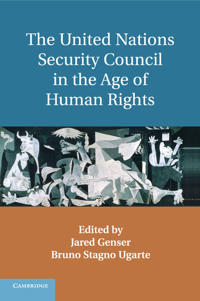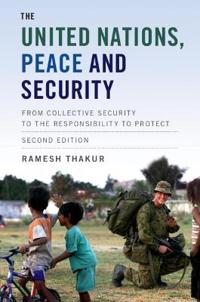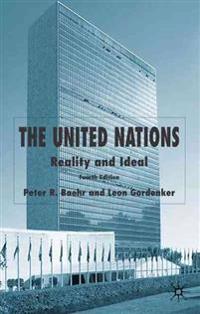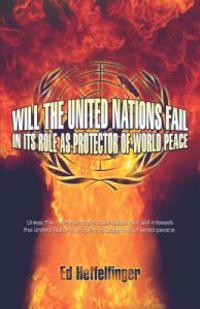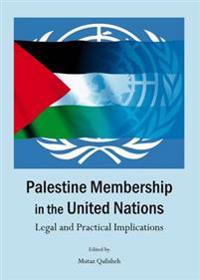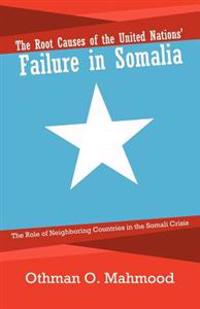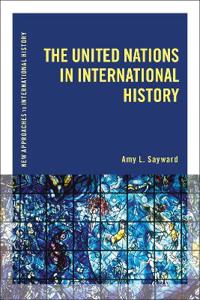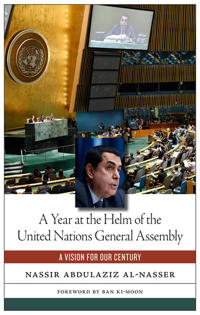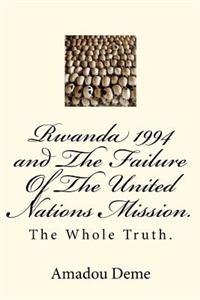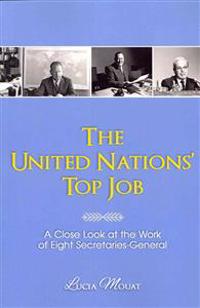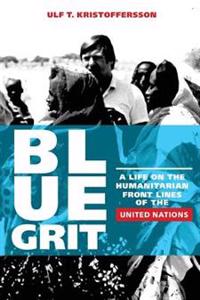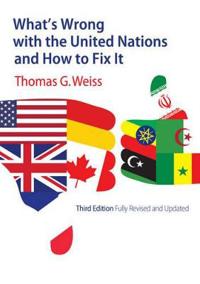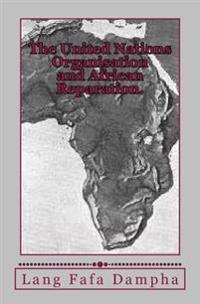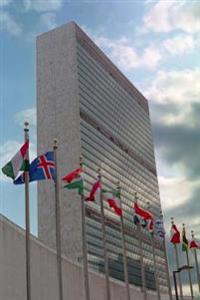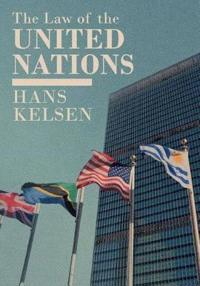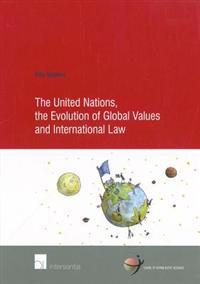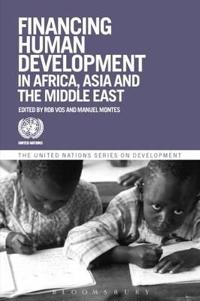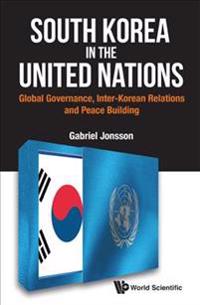The United Nations Security Council in the Age of Human Rights
ISBN: 9781316621158 - UTGIVEN: 2016-08This is the first comprehensive look at the human rights dimensions of the work of the only body within the United Nations system capable of compelling action by its member states. Known popularly for its failure to prevent mass atrocities in Rwanda, the former Yugoslavia, and Syria, the breadth and[...]
The United Nations, Peace and Security
ISBN: 9781316627723 - UTGIVEN: 2016-12Ending humanitarian atrocities has become as important for the United Nations as preventing interstate war. This book examines the transformation of UN operations, analysing its changing role and structure. Ramesh Thakur asks why, when and how force may be used, and argues that the growing gulf betw[...]
The United Nations (Häftad)
avPeter R. Baehr, Leon Gordenker
ISBN: 9781403949059 - UTGIVEN: 2005-08The United Nations, Peace Operations And The Cold War (Pocket)
avNorrie Macqueen
ISBN: 9781408237663 - UTGIVEN: 2011-07-07Rev. ed. of: United Nations since 1945: peacekeeping and the Cold War. London: Longman, 1999.
Military Implications of United Nations Peacekeeping Operations (Häftad)
avWilliam Maxwell
ISBN: 9781410218889 - UTGIVEN: 2004-12CONTENTS Introduction Military Implications of United Nations Peacekeeping Operations Command, Control and Coalition Operations An Historical Perspective The Relationship Between Peacekeeping, and Peace Enforcement Command and the Commander The Essence of Decision-Making in Coalition Operations A Po[...]
Will the United Nations Fail in Its Role as Protector of World Peace
ISBN: 9781424194353 - UTGIVEN: 2007-09Palestine Membership in the United Nations
ISBN: 9781443846561 - UTGIVEN: 2013-05This book aims to bridge the scientific gap that exists with regard to Palestine's membership of the UN as a State. As international law cannot operate outside the context of the global political atmosphere, the book focuses on the international legal dimension as well as the political/practical asp[...]
The Root Causes of the United Nations' Failure in Somalia (Pocket)
avOthman O. Mahmood
ISBN: 9781462053933 - UTGIVEN: 2011-10The United Nations in International History
ISBN: 9781472510037 - UTGIVEN: 2017-02The United Nations in International History argues for a new way of examining the history of this central global institution by integrating more traditional diplomacy between states with new trends in transnational and cultural history to explore the organization and its role in 20th- and 21st-centu[...]
A Year at the Helm of the United Nations General Assembly (Inbunden)
avNassir Abdulaziz Al-nasser, Shara (EDT) Kay, Ban (FRW) Ki-Moon
ISBN: 9781479862009 - UTGIVEN: 2014-08From September 2011 to September 2012, Ambassador Nasser Abdulaziz Al-Nasser of Qatar presided over the 66th session of the "world's parliament" - the United Nations General Assembly. It was a critical moment in international affairs as the UN responded to a range of global challenges, from the worl[...]
Rwanda 1994 and the Failure of the United Nations Mission.: The Whole Truth (Häftad)
avMR Amadou Deme
ISBN: 9781481068147 - UTGIVEN: 2012-12The United Nations' Top Job: A Close Look at the Work of Eight Secretaries General (häftad)
ISBN: 9781484806197 - UTGIVEN: 2014-02Blue Grit: A Life on the Front Lines of Humanitarian Action with the United Nations (Häftad)
avUlf T. Kristoffersson
ISBN: 9781505298345 - UTGIVEN: 2015-02What's Wrong with the United Nations and How to Fix It
ISBN: 9781509507436 - UTGIVEN: 2016-08Seven decades after its establishment, the United Nations and its system of related organizations and programs are perpetually in crisis. While the twentieth-century's world wars gave rise to ground-breaking efforts at international organization in 1919 and 1945, today's UN is ill-equipped to deal w[...]
What's Wrong With the United Nations and How to Fix It
ISBN: 9781509507443 - UTGIVEN: 2016-09Seven decades after its establishment, the United Nations and its system of related organizations and programs are perpetually in crisis. While the twentieth-century s world wars gave rise to ground-breaking efforts at international organization in 1919 and 1945, today s UN is ill-equipped to deal w[...]
The United Nations Organisation and African Reparation. (häftad)
ISBN: 9781518881640 - UTGIVEN: 2015-12United Nations Building in New York City Journal: 150 Page Lined Notebook/Diary (häftad)
ISBN: 9781535372497 - UTGIVEN: 2016-07Coaching Winning Model United Nations Teams (Pocket)
avEd Mickolus, J. Thomas Brannan, Ed Mickolus
ISBN: 9781612346038 - UTGIVEN: 2013-07By some counts, Model United Nations (MUN) has become the single most popular extracurricular academic activity among high school students. More than two million high school and college students have assumed the roles of ambassadors from real United Nations member countries, participated in spirited[...]
The United Nations (häftad)
ISBN: 9781631880759 - UTGIVEN: 2014-08The United Nations is a very important international organization. Around the world this agency's staff and volunteers are working to provide children with access to medical treatment and education. Have you ever wondered how this important work gets done? How do organizations like UNICEF help? What[...]
The United Nations, the Evolution of Global Values and International Law (Häftad)
ISBN: 9781780680361 - UTGIVEN: 2011-10In this book, Otto Spijkers describes how moral values have determined the founding of the United Nations Organization in 1945 and the evolution of its purposes, principles and policies since then. A detailed examination of the proceedings of the United Nations Conference on International Organizati[...]
Financing Human Development in Africa, Asia and the Middle East (Häftad)
avRob Vos, Marco V. Sanchez, United Nations
ISBN: 9781780932200 - UTGIVEN: 2013-08How much would poor nations need to invest to eliminate poverty, get all children in school and provide adequate basic health care for all? Can they afford it? Financing Human Development in Africa, Asia and the Middle East provides some clear answers to these questions. The contributors assess feas[...]
South Korea in the United Nations
ISBN: 9781786341907 - UTGIVEN: 2017-03In 1991 South Korea, along with North Korea, was made an official member of the UN. Using international relations theory, this book begins by looking at the struggle and eventual impact of the membership on the two countries post division in 1948. It investigates the predicted outcomes prior to join[...]
Dag Hammarskjoeld, the United Nations, and the Decolonisation of Africa
ISBN: 9781787380042 - UTGIVEN: 2019-05In 1953 Dag Hammarskjoeld became the second Secretary-General of the United Nations--the highest international civil servant. Before his mission was cut short by a 1961 plane crash in then Northern Rhodesia (Zambia), he used his office to act on the basis of anti-hegemonic values, including solidari[...]
The United Nations Convention on Contracts for the International Sale of Goods (Inbunden)
ISBN: 9781841131702 - UTGIVEN: 2011-05-17The book provides an authoritative article-by-article analysis of the United Nations Convention on Contracts for the International Sale of Goods.[...]

